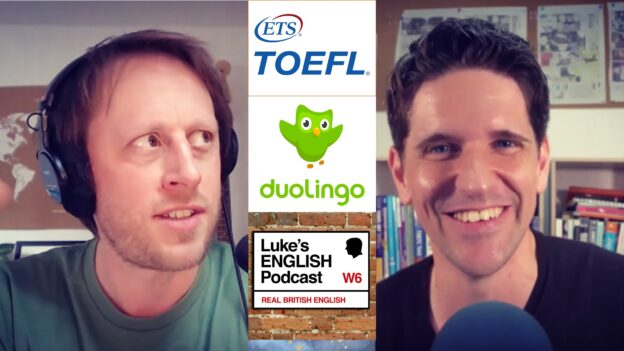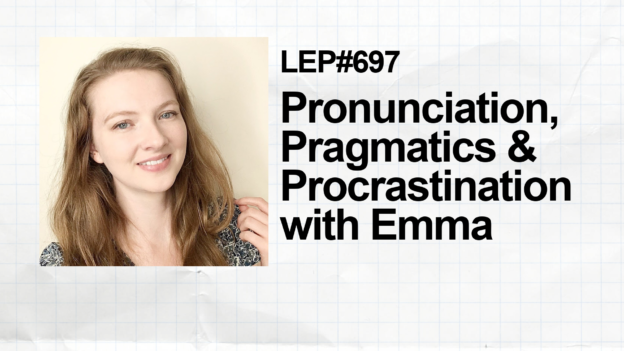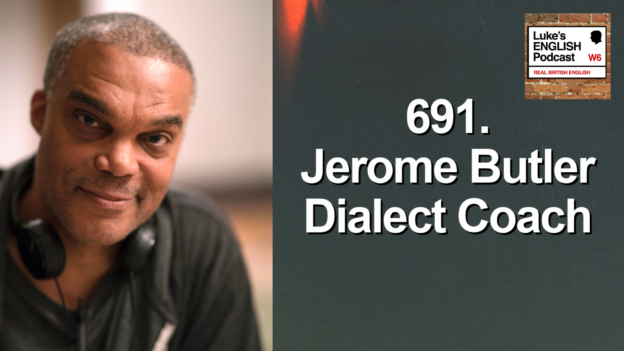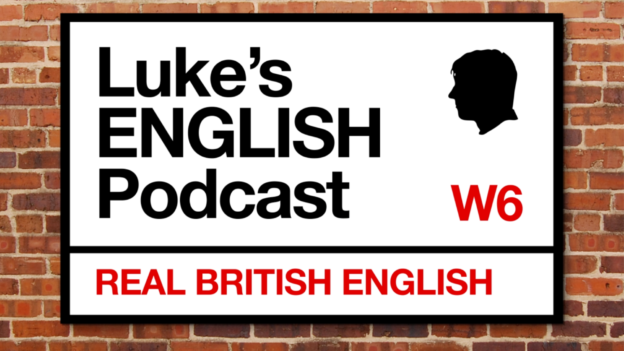I’m back in the podcast-zone after my holiday so I thought I would do another rambling episode before getting down to work on other content to be released soon. Video version also available.
Audio Version
Video Version
Transcript / Notes for this episode
Hello and welcome back to the podcast!
This is episode 735 and it is a rambling episode, which means it’s just me talking to you about various things – including: whatever comes into my head while I’m recording, but specifically this time I’m aiming to talk about
- Being back from holiday and getting back into the podcast zone
- Comments about my audio listeners and my video viewers on YouTube
- News about moving flat and moving to my new pod room (You can see that the move hasn’t started yet and so the podcast has not been disrupted yet)
- Some common questions from the YouTube comment section (new listeners)
- Charlie Watts – the drummer from the Rolling Stones who passed away yesterday
- A couple of comments from the comment section including one very motivational email I got from a long-term listener
- Whatever else occurs to me as we record this!
As well as being available as a normal episode of the audio podcast, this is also available on YouTube with some text on the screen – the notes and scripts that I’m reading from, so you can read along with me and spot certain phrases and spelling and so on.
By the way – you can always pause this and check the screen if you feel you didn’t understand something or you found a new word or phrase.
I’m reading from a script / notes
In this episode I’m reading from a script which I wrote last night. I don’t normally read from a pre-written script when I do these rambles, but this time is different.
I wrote most of this script last night, when it wasn’t really the right time to do a podcast recording, but I still consider this to be a rambling episode because I just rambled with my fingers last night and now I’m just reading out the text-ramble that I created, so it still counts as rambling as far as I’m concerned, and I of course I can deviate from the script/notes whenever I want.
So stick with me and I hope you enjoy listening to my words as they flow out like endless rain into a paper cup – a cup which you can take and drink from, metaphorically of course.
Drink my English – that’s what I’m saying. I hope you know what I mean!
In the podcast zone (this is what I wrote last night)
I’m sitting here in front of the computer. My wife is lying across the sofa watching a French TV show on her phone and she’s under a nice sheepskin blanket that we have so she is feeling very cosy. I’ve just made her a cup of mint tea and I’ve tucked her feet into a blanket because I’m such a great guy and a really wonderful husband.
The child is in bed asleep, and despite the madness that is going in on the world outside, this is a little moment of peace and quiet.
Now I’m sitting with my computer on my lap, but I’m pretty much in the podcast zone right now – meaning, that I’m thinking of ideas for the podcast, considering what I’ve been doing and what I should do next. I know I should be able to record tomorrow as the little one is going to her French grandparents for a few days and my wife has work to do, so tomorrow is podcast day.
But I’m in the podcast zone now because I’m thinking about podcast ideas and things to record tomorrow. I’m just writing down my thoughts on my computer as they come into my head. I’m trying to write down every thing I’m thinking in order to make sure this is actually a rambling episode. I’m rambling everything down in text form here and I’m trying to make it sound like I am actually speaking normally and not reading from a text.
What I’ll have to do tomorrow is record this but make it sound like I’m just saying it all off the top of my head.
Also I might just go off on a tangent at any point and deviate from the script, if something occurs to me.
In fact, what I’m going to do is, the word-for-word script for this is going to stop soon and I’m going to just write down some basic notes and then expand on them as I talk into the microphone tomorrow (which is actually today – so, tomorrow is now, so, are we in the past, the present or the future? I think I might have just invented time travel. These words are from yesterday, but I’m reading them now and you’re going to listen to them in the future – let’s just say that in podcastland, time is a sort of flexible thing a bit like a jelly or something.
Yep, in LEPland, time is jelly – which might explain why my episodes are quite long sometimes.
In any case, I would like to record this episode tomorrow as a kind of welcome back before embarking on things like premium content and other episodes I’ve been planning.
I do have other episodes I’d like to do and tbh while I was away on holiday over the last 3 weeks or so I was itching to get back to podcasting.
I had lots of ideas popping into my head which I couldn’t quite hold onto and as I didn’t get the chance to write them down, they’ve all disappeared into the ether – little ideas, comments, stories that occurred to me at various moments, like when I’m in the shower but which I almost instantly forgot – so I was quite keen to do some recording again after being away just to satisfy the compulsive podcasting side of me.
The holiday was fantastic and one of the best ones we have had for ages. I’ll tell you about it a bit later in this episode.
Those other episodes I could be doing right now:
P31 parts 4,5,6
Learn English from my mum as we look at phrases which came up in our conversation in episode 717 – learn them properly with loads of examples and the chance to do plenty of listen and repeat pronunciation work with me so you don’t just learn new language, but learn how to produce it too.
War of the Worlds part 4 (conclusion?)
88 English expressions that will confuse everyone! (remember that? I never finished it)
More stories like The Mountain
Reading from more texts or books
An episode with The Thompsons which I recorded when I was in England
Some invitations to other podcasters/English teachers who have interviewed me recently
Top 10 Jokes from the Edinburgh Fringe 2021
And I have a big list of other ideas which I am slowly working my way through.
But I think before I do those ones and perhaps some others, I’d like to just do this rambling episode with you.
These rambling episodes are where I just talk to you directly and move from topic to topic almost making it all up as I go along.
So just keep up with me, follow along and let the words flow through you like the force in Star Wars.
Feel the English, let it flow through you.
Be the English.
Imagine blue lazers and Star Wars / The Matrix type stuff.
Be one with the living English and listen with me as I chat to you about various things.
Audio listeners / Video Viewers (LEP is an audio podcast, with some videos on YouTube)
Most people listening to this – the vast majority listening to my words right now are listening to my podcast on their phone probably with headphones on, using a podcasting app of some sort, probably the native Apple Podcasts app on the iPhone or something like Spotify or another podcasting app, or perhaps you are listening on the LEP App.
Most people listen to the audio version of this – and I’m saying this now because I’m also recording a video version of this on YouTube and I feel like YouTube is a pretty different audience.
All the other platforms (ways to listen to the audio podcast) are united in one sort of group – the audio LEPsters and they’re more ninja-ish but they’re perhaps a bit more solid, reliable, dependable and loyal.
I don’t mean to have a pop at (criticise) the video LEPsters on YouTube, but they seem to be a slightly different type of LEPster. I feel like YouTube LEPsters are less ninja-ish because there are many more comments.
Also, YouTube LEPsters (hello) seem to be less aware of the back catalogue of episodes, and I get a lot of people who have never heard the podcast ever before. (shocking, I know)
But YouTube has enormous potential to go viral. In fact, in a way it’s like swimming in the deep ocean and you could catch a current and get into the very deep water.
I mean, most episodes on YouTube get less attention than the audio versions, but then some videos go viral as they get picked up by the algorithm which is responding to the way people interact with your video and I guess that the algorithm sort of picks up on videos which are popular and promote them, as a way to always present the best content on the platform.
So a couple of my recent videos went a bit viral (not a lot but a bit), which was nice.
So – YouTube LEPsters – here, let me just have a word for a moment.
Really, this is an audio podcast that also has a youtube channel and recently I’ve been uploading more to it, but really this is still, mainly, an audio show and I have a big archive of audio episodes on my website and in my app.
Not all the episode are available on YouTube and they’re not all on Apple Podcasts, but they’re all there on my website, with episode pages for each and every single one of them and audio download links.
Go to my website teacherluke.co.uk (I know it looks like it was made in 2012) and then click EPISODES in the menu, and also in the LEP App you can get every single episode.
Most people listen to my podcast using an app on their phone and they listen when they are probably doing something else, like walking around, driving (please be careful), doing housework, doing exercise or simply breathing.
So listening to the audio version on your phone seems to be the normal way to do it.
If you listen using a podcast app on your phone, and you need to stop listening for whatever reason, the app will remember where you stopped listening and you can then carry on from that point later. So, you don’t have to listen to an episode in one single go.
The majority of my audience listen to the audio version of this and I’ve been doing the audio podcast for over 12 years now, and I have a big back catalogue of episodes and I have talked about lots of different things over the years including some things that I’m sure you’d like to hear, so check out the episode archive for the older episodes.
LEP App
My app disappeared from the Apple App store for a couple of days (I had a payment issue with Apple) and when it came back all the ratings and reviews had gone (3 years’ worth), which was annoying. Can you do me a favour (no obligation of course) and give the app a rating and a review (if you use it)?
How was your holiday?
It was great. No need to go into full detail like I have in the past, but basically we got lucky with the weather and had a really lovely time.
What about moving to your new flat and moving to a new pod-room?
Building work is being done in the new flat. I think the downstairs neighbours will want to murder us.
I probably won’t get the keys to the new pod-room until mid September, and then I’ll move in there. I’ll need to get electricity and internet connected there, and to fit a desk and some shelves, and then it’ll be the official new pod-room.
Common Questions since going viral on YT
I am going to try to answer these questions as quickly and succinctly as possible without rambling at all in fact. So in this rambling episode, here is a section with no rambling.
I hope that’s clear.
So, this is a rambling episode, with a bit where there’s no rambling.
Anyway – no rambling here, let’s just get straight to the point and keep it simple.
Common Questions from YouTube
Where are you from?
Can you do an episode about ______?
Check the episode archive on my website. There’s a chance I’ve already talked about that.
Go to the archive and do a ctrl+F search for the keywords you’re interested in.
How can I learn English by listening to your podcast?
This can really help you a lot, but it’s not the only thing you should do.
It’s also important to read a lot (find texts which are not too tricky, use fairly modern English and which you actually want to read) study a bit (use grammar, vocabulary and pronunciation teaching materials of any kind and work with them – it’s not the only thing, but it helps) do lots of speaking if you can (ideally find someone to have meaningful conversations with, perhaps a teacher or language partner who can give you some little corrections and encouragement) and write on a regular basis too (practise writing different types of text or just write a diary every day in which you express your thoughts in English – you’ve got to express yourself in English regularly in order to find your voice).
Learning English is about learning how to do something, not just learning how to understand something, and we generally get better at things by trying to do them again and again.
So listen and read a lot and try to speak and write a lot too. That’s quite general advice but there it is.
For more specific advice on how to use the podcast to improve your English, you could listen to these episodes
174, 568.
Should I listen to the episodes on order?
It’s up to you really. You can just listen to all the new ones as they come out, but if you really want to learn from me properly then I would suggest listening from episode 1.
Certainly if you are a lower level learner, the first 50-ish episodes are probably a bit easier to understand and have more specific language-teaching objectives, so it would be good to start with them.
But equally, if you just find my episodes fun and interesting you can listen to them in any order you like. Be aware though: multi-part episodes should be heard in order, and there might be little private jokes and references from earlier episodes which you might not understand (like the dreaded Russian Joke).
Can you do more story episodes?
Yes, I’m planning to do more stories.
Can you do episodes about grammar, vocabulary and pronunciation?
Consider signing up to LEP Premium for loads of episodes like that.
www.teacherluke.co.uk/premiuminfo
Can you feature ___(insert name here)___ again? (Check previous episodes)
Check the archive – a lot of my guests have been on the podcast before, especially favourites like Amber & Paul and my family. Check the archive.
Can you do video episodes every time?
Not every time, but I’ll try to do them as often as possible.
Is there a transcript for this episode?
teacherluke.co.uk
Transcripts
Episodes with transcripts
Episode archive and check
Transcript collaboration
YouTube channel – automatic subtitles
Live without subtitles – Learn to hear the spoken version of English without the aid of the written version (Although subtitles and scripts can also be a great resource, and so you should do a bit of both).
Recent appearances on other people’s podcasts
So in the last episode I mentioned:
The Level Up English Podcast
Stories of Language Learners Podcast
Since then I was also on:
English Small World Podcast (by Apex Language Consulting & Training in Taiwan) (2 episodes) apexenglishpodcast.podbean.com
The Clark and Miller English Podcast
Charlie Watts
The Rolling Stones seem to be missing a drummer and a bass player. I hear Ringo Starr and Paul McCartney are available. Imagine if they formed a Beatles/Stones supergroup at the very end of their careers?
But of course nobody could replace the people who are gone like Charlie Watts and Lennon and Harrison, but still it would be fun for the five remaining guys to get together and perform.
Actually I think they’d be an amazing band but there would be ego struggles between Jagger and McCartney for stage limelight.
Paul and Keef are great mates I believe and they used to meet up together when they both stayed in the Caribbean
and probably have a few cups of tea and have a laugh and tell stories of the old days.
So they’re pretty tight, and Ringo is friendly with everyone and still drumming.
The Rolling Beatles
Message from Lio in Brazil
Remember the WISBOLEP competition? That was awesome.
From Lio from Brasil who didn’t make it to the last 16.
Lio appears at about 2:24:00 in the Wisbolep 1 video.
The point is – there were so many people who sent really great recordings and who didn’t get through to the last 16.
I want to share this because it is a very real example of someone who has connected the learning of English to their personal life in a very human way – which means, making mistakes, acknowledging motivational issues and finally coming to terms with the fact they have to take responsibility for learning and the end result is great.
This is an excellently written email that obviously just came out of Lio without him planning it and rewriting it. He has done really well with his English, as have so many other LEPsters. This is what he wrote.
…
Lio from Brasil
I had so much fun during this competition, even though I didn’t pass the first round.
Let me tell you something, I’ve been meaning to write it for a long time..:)
You know, I need to be frank, I was sooo happy and keen to participate that, when I recorded my pitch, I wasn’t thinking about “what” I should have said, but only about “how” to say it, (very slowly and clearly).
My thought was: “I want everyone to understand me”, because I guess that there are different types of lepsters, people who just started and people who have been listening for years…
So I decided to speak that way..,I guess the result was that I made myself sound like a robot 😶
I don’t want to be too hard on myself but knowing that there is always room for progress, helps me on the journey, it tells me that I could be working even harder on my English, while at the same time having fun.
I love this language and when I was younger, it was so frustrating and tiring. You know the vibe because you’re learning French and you need it in one way or another.
As a non native speaker I knew as a child that I HAD to learn English, sooner or later.
It was only 9 years ago that I started to want to learn it…and did I start then? Of course not!!! naaa, too easy!! Let’s just procrastinate for other 5 or 6 years 😜
And so, as the story goes, in 2016 (November, I swear 😂) I started googling “learn English” online, Youtube and other websites…but I wasn’t satisfied, I was looking for something that wasn’t boring or “slow-paced”.
I desired something interesting and alive, that could help me defeat my tendency to quit learning the language.
Why? Because English represented this scary monster in my head and I had more worries than solutions at the time. So I felt the need to challenge myself and, as a beginner your podcast seemed quite advanced and not doable, I thought I couldn’t possibly succeed in understanding everything that was being said, episode after episode.
And then, at a certain point, I don’t know when or how, it just “clicked”…I think around episode 60 or 70…I suddenly realized I was understanding everything on the podcast.
At that point, after years of procrastination, failures and half attempts at learning the language, I felt like: “that’s it! I got it! Finally!”
Now, let me just tell you that I was aware of how much work I still needed (and need now)..but believe me…I cracked the code, I finally unlocked this thing, I got this! That’s how I felt…
But I need to add that, although I had finally found the resource I was looking for, I wasn’t disciplined enough for self studying and I already knew very good books (Raymond Murphy’s and collegues), but as you said so many times that I couldn’t possibly remember, you need to take responsibility for the learning process.
I really liked episode 686, you and Christian from Canguro English said a very important thing.
Sometimes people think that when one wants to learn a language, he/she simply needs to take lessons from a teacher saying: “Ok, I’m here, just fill me up with English”, so to speak..but if that was the case, how much easier things would be?
There is that film with Keanu Reeves, what was its name? Oh Yeah “Johnny Mnemonic” (1995) in which they put data inside his brain and he has to carry it, as a courier I believe.
Anyway the point is, it doesn’t work like that, us, learners, we are the ones that need to do the hard work, guided by our teachers, in the lepsters case, by you of course, 😁you’re the one who unlocks all of this.
I followed a lot of advice you gave and let me tell you… thank you, it worked wonders!
So yeah, 80% of what I know comes from here! LEP!
But there is also something I love doing as much as possible, and that’s creating my own learning bubble where I’m immersed in the language, as much as possible. Your podcast is a great way to do that ! You definitely revolutionized my English comprehension, aquisition and assimilation and I’m so thankful for that! Not only the language, but your culture too!
I remember episode 100 of Lep: “Going to the pub”, (wow, so many years ago), that’s how it felt in this journey, sitting in a pub with a friend, chatting about so many things, that was the classroom. And episode 99:” The Rotary Sushi Bar of English”, where you pick up all the different portions of English.
Let’s wrap this up, shall we? :)
Thank you for all of this! I had and I’m having so much fun with Lep and knowing that so many people are part of this community is a strong reminder that in the end we’re all from Lepland, we all share this passion for the language and, as our teacher said many times, it’s all about connection, not perfection!
P.S. Let me do it at least once …I’m certainly rushing to get to next episode…hehe ;)
Until then…bye bye byee bye bye
All the best,
Lio
HAMAD – STOP LISTENING TO LEP IN THE BATHROOM!
Hi Luke,
Hope you are doing great in these Covid-19 times.
One of your very dedicated listeners is Hamad, my husband, who annoyingly keeps listening to your podcasts in the bathroom, while showering, even when he is changing his clothes!
He keeps waking me up from my sleep during his morning “rituals”, or anytime he goes to the bathroom to do ANYTHING.
Please let him know i sent you this message, and tell him to PLEASE stop listening to your podcasts in the BATHROOM.
Sincerely, a concerned yet disturbed wife, Aysha
Thank you.
Sent from my iPhone











